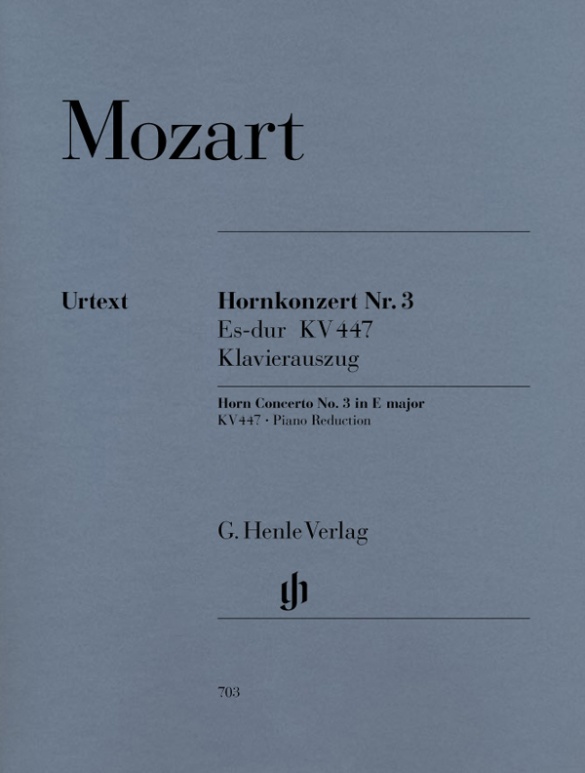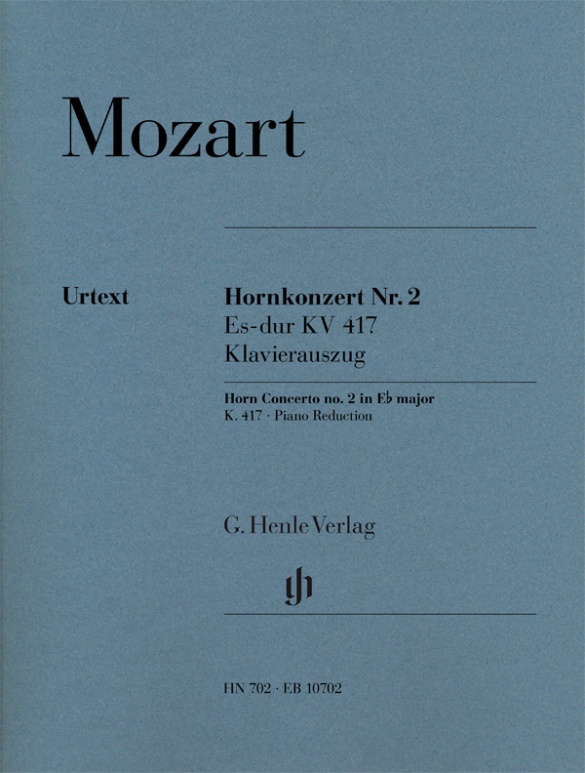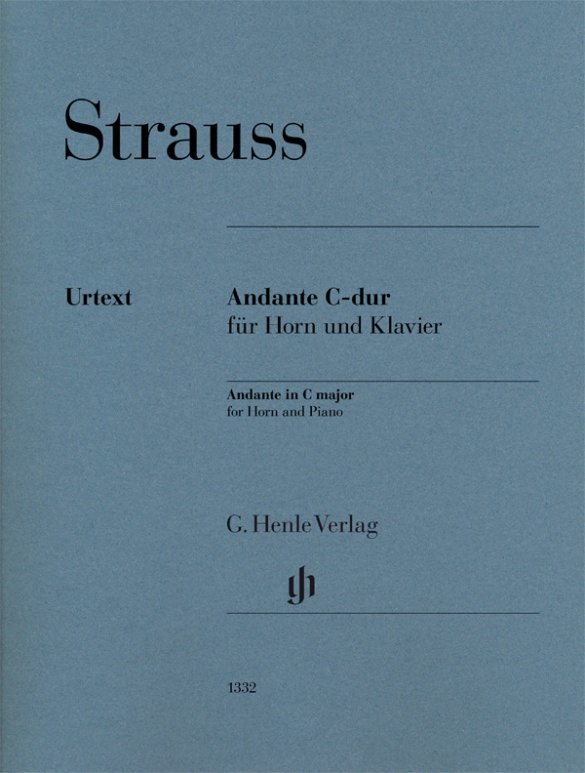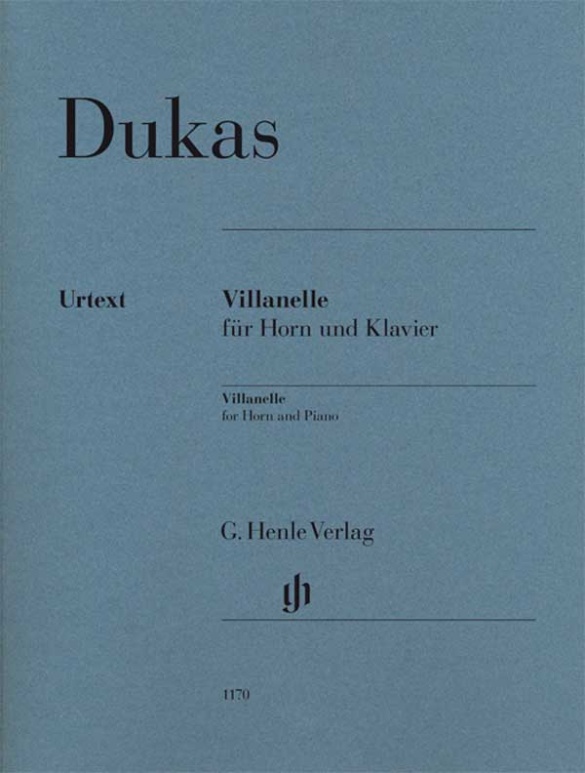

Paul Dukas
Villanelle for Horn and Piano
Paul Dukas wrote his Villanelle as a demanding exam piece for the horn class of the Paris Conservatoire in 1906. The title, referencing a cheerful traditional vocal genre that originated in 16th century Italy, already shows that it is by no means a dry etude.
Alongside the technical challenges (stopped notes, fast scales, playing without valves using natural horn techniques), the piece is successful because of its refreshing melodies, for which reason the Villanelle is still one of the most popular performance pieces for the horn. For our Urtext edition we consulted the autograph as well as the first edition that was originally for horn and piano: the later version with orchestral accompaniment does not stem from the composer.
Content/Details
PREFACE
CRITICAL COMMENTARY
About the Composer
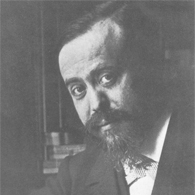
Paul Dukas
A French composer and music critic. His reflections on musical aesthetics constitute an important contemporary document for better understanding his era. Among his Impressionist compositions are to be found works for orchestra, piano and chamber pieces, and vocal music.
| 1865 | Born in Paris on October 1. |
| from1881 | Studies harmony with Théodore Dubois and piano with George-Amadée Mathias at the Paris Conservatoire. |
| from 1883 | He meets Claude Debussy in Ernest Guiraud’s composition class. |
| 1884 | His overture “Goetz de Berlichingen” is premiered. |
| from1889 | Unsuccessful attempts at the Grand Prix de Rome prompt him to leave the Conservatoire. |
| 1892 | His overture “Polyeucte” celebrates its Paris premiere. He emerges as a music critic for the Revue hebdomadaire. |
| 1897 | On May 18, his best-known work, “L’Apprenti sorcier” (“The Sorceror’s Apprentice”) is premiered at the Société Nationale. |
| from 1900–07 | In his most creative phase of composition, works like the “Variations, interlude et finale sur un thème de Rameau” and opera “Ariane et Barbe-Bleue” (“Ariane and Bluebeard”) are written. |
| 1910–13 | Professor of orchestration at the Paris Conservatoire. |
| 1923–32 | Writes works on pedagogy and music history. |
| 1928 | He teaches composition at the Paris Conservatoire and at the École Normale. Using the music of Johann Sebastian Bach, he communicates primarily historical styles. Olivier Messiaen and Maurice Duruflé are among his students. |
| 1934 | He becomes a member of the Académie des Beaux-Arts. |
| 1935 | Dies in Paris on May 17. |
About the Authors

Dominik Rahmer (Editor)
Dr. Dominik Rahmer, born in 1971 in Mainz, studied musicology, philosophy and maths in Bonn. He did his Magister Artium in 1999 and his doctorate in 2006 with a thesis on the music criticism of Paul Dukas.
From 2001 to 2011 he was employed at Boosey & Hawkes/Bote & Bock in Berlin, where he also worked on the Critical Edition of the Works of Jacques Offenbach (OEK). Since 2011 he has been an editor at G. Henle Publishers in Munich, with a particular focus on French and Russian music and works for wind instruments.

Klaus Schilde (Fingering)
Prof. Klaus Schilde, born in 1926, spent his childhood in Dresden. There he was greatly influenced by Walter Engel, who taught him the piano (Kodaly method), composition and violin. From 1946–1948 he studied at the music conservatory in Leipzig with Hugo Steurer. After moving to the west in 1952 he studied with Walter Gieseking and Edwin Fischer, as well as with Marguerite Long, Lucette Descaves and Nadia Boulanger in Paris.
Schilde won numerous prizes. From 1947 onwards he gave concerts as a soloist and chamber musician on almost every single continent with renowned orchestras. He taught at the music conservatories in East Berlin Detmold, West Berlin, Munich, Tokyo (Geidai) and Weimar. From 1988–1991 he was President of the Staatliche Hochschule für Musik und Theater in Munich, where he also taught for decades as a professor. There are numerous radio and television broadcasts with Klaus Schilde as well as CD recordings. Schilde has contributed fingerings to almost 100 Henle Urtext editions.
Prof. Klaus Schilde passed away on 10 December, 2020.
Diese Urtextausgabe sollte unbedingt benutzt werden, wenn man sich mit diesem Werk befasst – denn sie stützt sich auf Dukas Autograph sowie auf die Erstausgabe in der Originalbesetzung für Horn und Klavier.
Sonic, 2013recommendations
autogenerated_cross_selling
Further editions of this title
Further editions of this title


